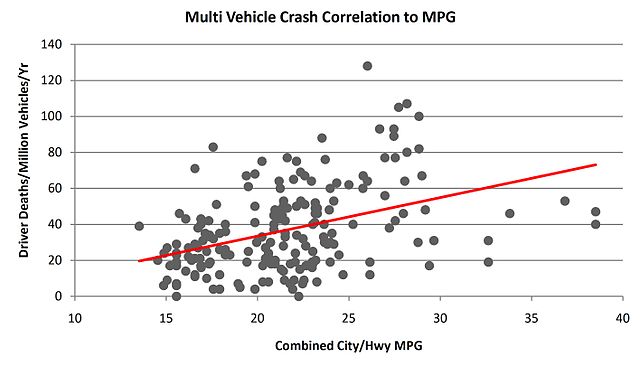Difference Between Correlation and Association
Due to many years of misuse, the terms correlation and association became entangled and have been used interchangeably and incorrectly, even though they are definitely not synonyms. Right now, many people are working on disentangling the terms, but even more people believe that that is an impossible and futile task. Therefore, the best advice that can be given regarding the meaning of these terms is to pay close attention to the person using them, and determine their meaning out of context. That being said, this article will focus on the meaning of correlation from classical statistics, since that’s where it’s best defined and unambiguous.
Correlation in this sense is defined as the strength of the linear relationship of two variables. So it measures whether, if we increase or decrease one variable by a certain factor, the other variable will also increase by that same factor or a factor that is somewhat close. The measure of the strength of this dependency is the correlation. A correlation can be positive or negative. If it’s positive, then that means that one variable will increase if we increase the other variable that is correlated to it, or decrease if we decrease the other one – basically they fluctuate in the same direction. A negative correlation means they fluctuate in opposite directions. If we increase one, the other one will decrease, and vice-versa.
Association, on the other hand, has much less strict definitions, and can be used to explain a lot of different things. It is often used to describe a group of people with a common cause, but it is also used to express any sort of connection between two things.

What is Correlation?
As covered above, correlation represents a direct linear connection between two variables. For example, if a study says that they found a correlation between smoking and lung cancer, that means that they analyzed the data and found that, following the increase in tobacco and cigarettes usage, the number of patients with lung cancer also drastically increased. Of course, not every correlation means that the two variables are directly connected, they could be just coincidental overlaps. However, if the correlation also appears when one of the variables is tuned down a little, then there is a certain chance that there is indeed some sort of causation between the two variables, like in the example of cigarettes and lung cancer.

What is Association?
Association can mean a great many things, and sometimes can even be used interchangeably with correlation. However, the focus of this article will be on the definitions of association that don’t allow for this. As I’ve mentioned, association can mean a group of people with a common goal. It can also mean a connection between two things. However, this connection can be something much less strictly defined as it was in the case of correlation, where it was a strict mathematical quantity. Here, it can just be something that vaguely reminds you of something else. For example, a certain smell can remind someone of their home, or a certain sound of another event that was important to them. The options are limitless, and none of them have to include either correlation or causation. Most of us are familiar with the game of associations, where a person has to explain to another person a term without actually using it, and that’s where the best definition of association can most easily be found – it’s something that more or less reminds us of something else.
Differences Between Correlation and Association
Level of ambiguity in Correlation and Association
This point could be the biggest difference between these two terms. Association is a term that can be used to describe a lot of things, without a specific scientific definition. On the other hand, correlation has the exact scientific definition, and is therefore used in an area of mathematics.
Scientific usage of Correlation and Association
As I just mentioned, correlation is used as a term to describe the level of linear connection between two random variables, whereas association has no usage in any area of science, except perhaps psychology, in which it can easily be replaced with other terms.
Applicability of Correlation and Association
Correlation has a wide spectrum of applications in science, while association has almost none, and it’s the opposite in real life – you’ll mostly use the term association for everyday causes. In addition, the term association can be used to describe great many things, from games, to groups of people, to connections between memories and sensations.
Correlation vs. Association: Comparison Table

Summary of Correlation vs. Association
- Correlation and association are two terms that have been misused by non-professionals a lot, and therefore became entangled
- Disentangling them is widely regarded as borderline impossible, so I’ll focus on the main differences that have been defined so far
- Correlation is a term that is used in classical statistics and describes the strength of a linear connection between two random variables
- Correlation doesn’t mean causation, and so, if correlation exists, that doesn’t mean there is an actual connection and reason for those two variables acting similar
- Association can mean a group of people with a common cause, or any other connection between two things
- The main difference is in the level of ambiguity, but these two terms also differ in their scientific applications, as well as the number of things they’re applicable to.
- Difference Between Kinetics and Kinematics - March 16, 2018
- Difference Between Correlation and Association - March 13, 2018
- Difference Between Momentum and Impulse - March 8, 2018
Search DifferenceBetween.net :
Leave a Response
References :
[0]Nomura, Shosaku, et al. "Correlation and association between plasma platelet-, monocyte-and endothelial cell-derived microparticles in hypertensive patients with type 2 diabetes mellitus." Platelets 20.6 (2009): 406-414.
[1]Kendall, Maurice George. "Rank correlation methods." (1948).
[2]Association of Official Analytical Chemists, and Association of Official Agricultural Chemists (US). Official methods of analysis of the Association of Official Analytical Chemists. Vol. 2. Association of Official Analytical Chemists., 1920.
[3]Image credit: https://upload.wikimedia.org/wikipedia/en/thumb/a/a2/Multiple_Vehicle_Crash_Correlation_to_MPG.jpg/640px-Multiple_Vehicle_Crash_Correlation_to_MPG.jpg
[4]Image credit: http://www.thebluediamondgallery.com/tablet/images/association.jpg
